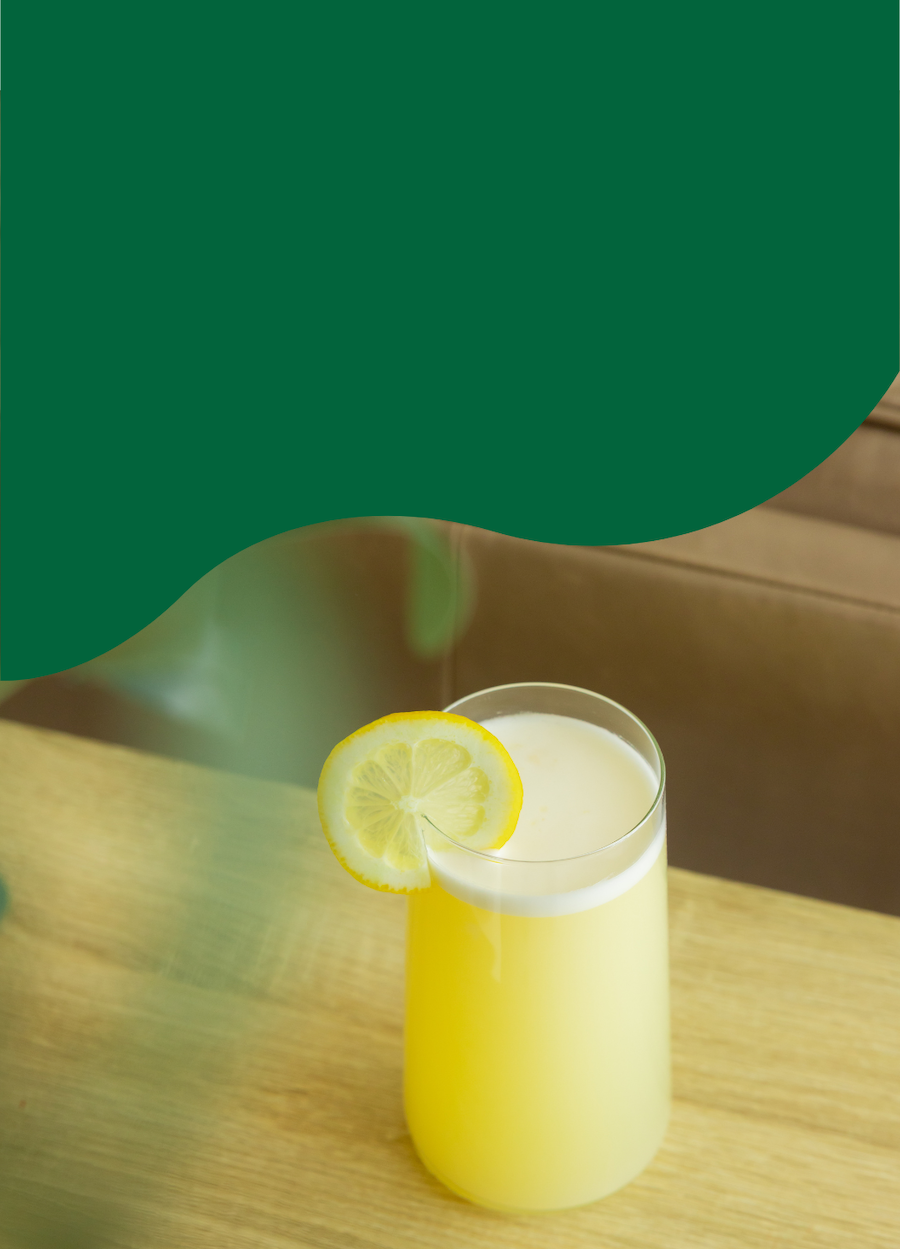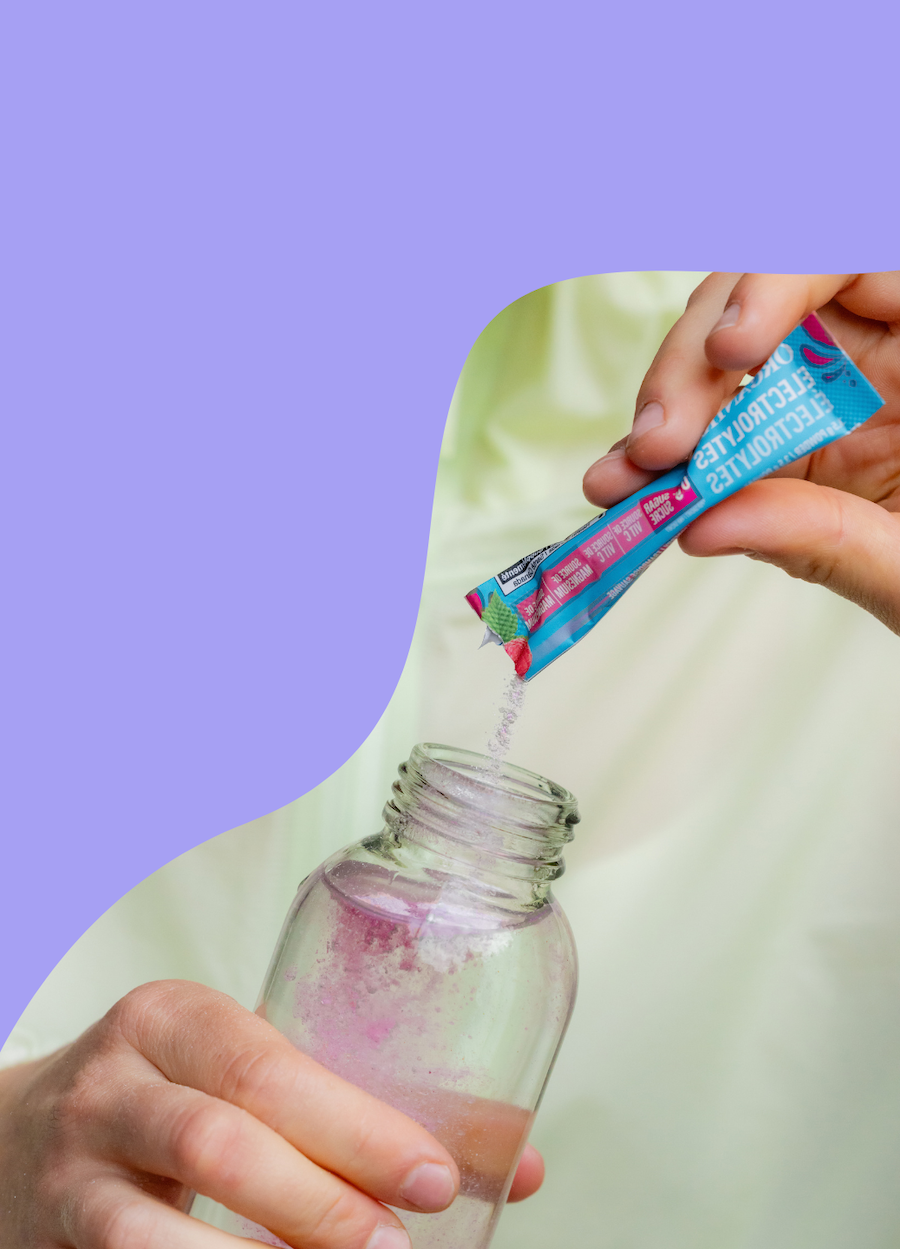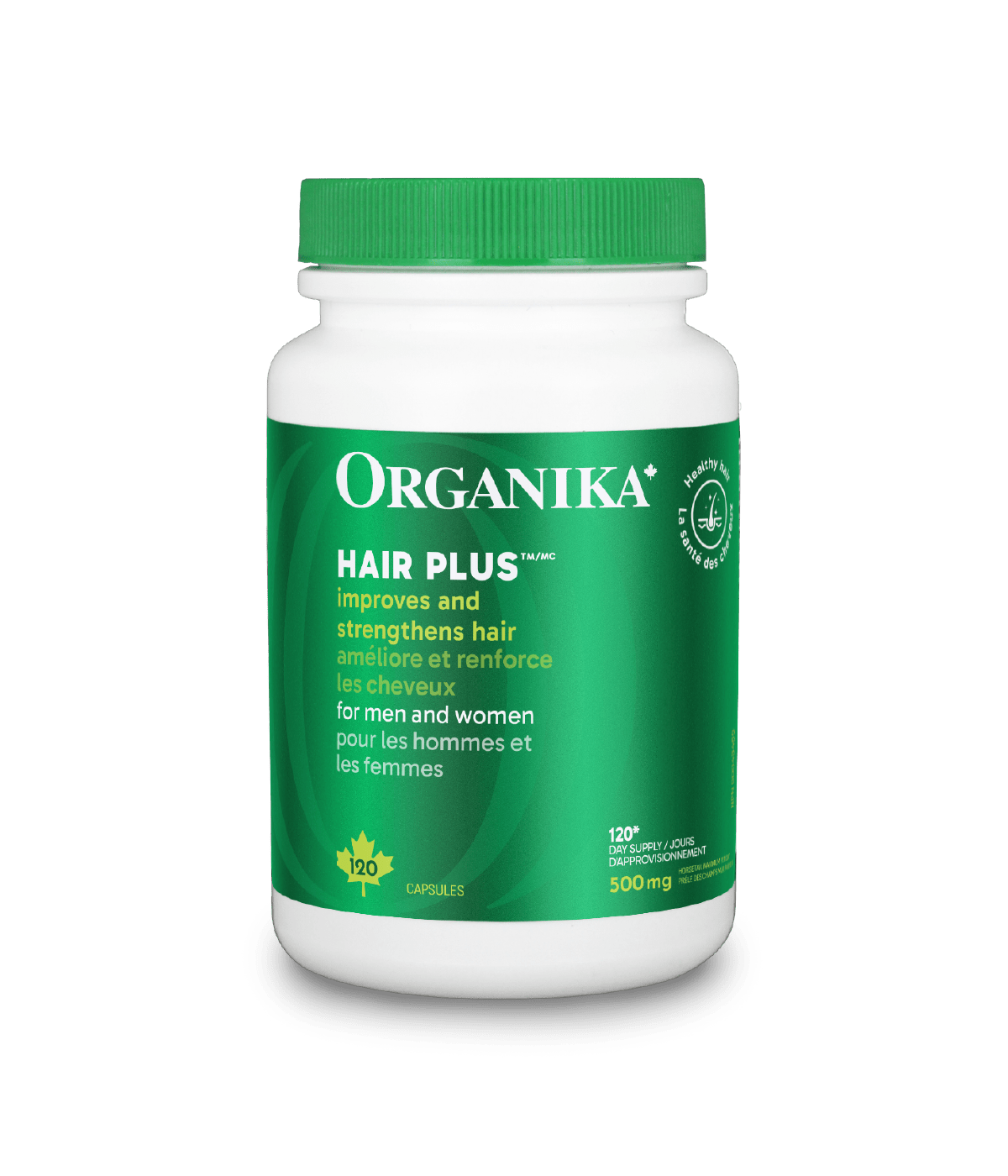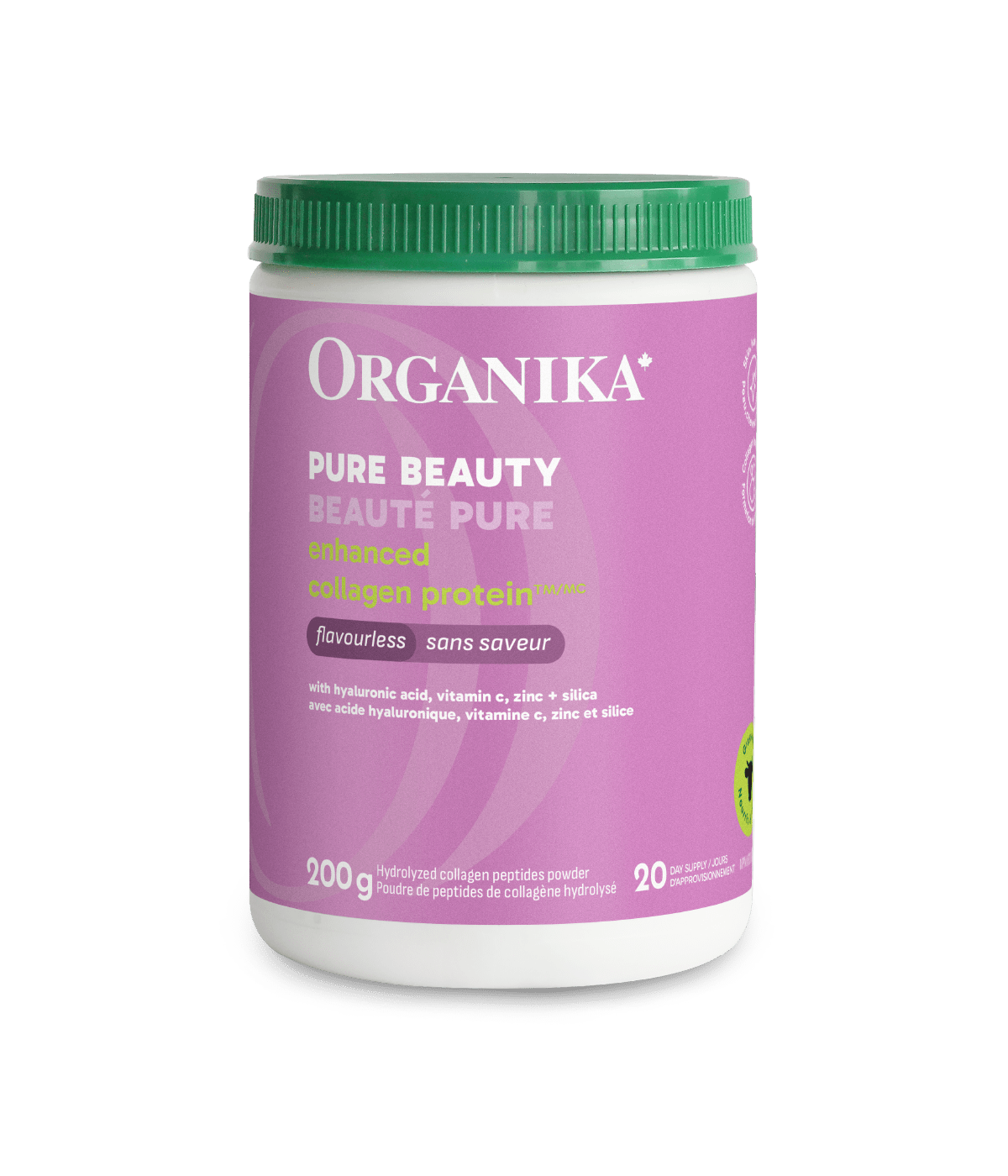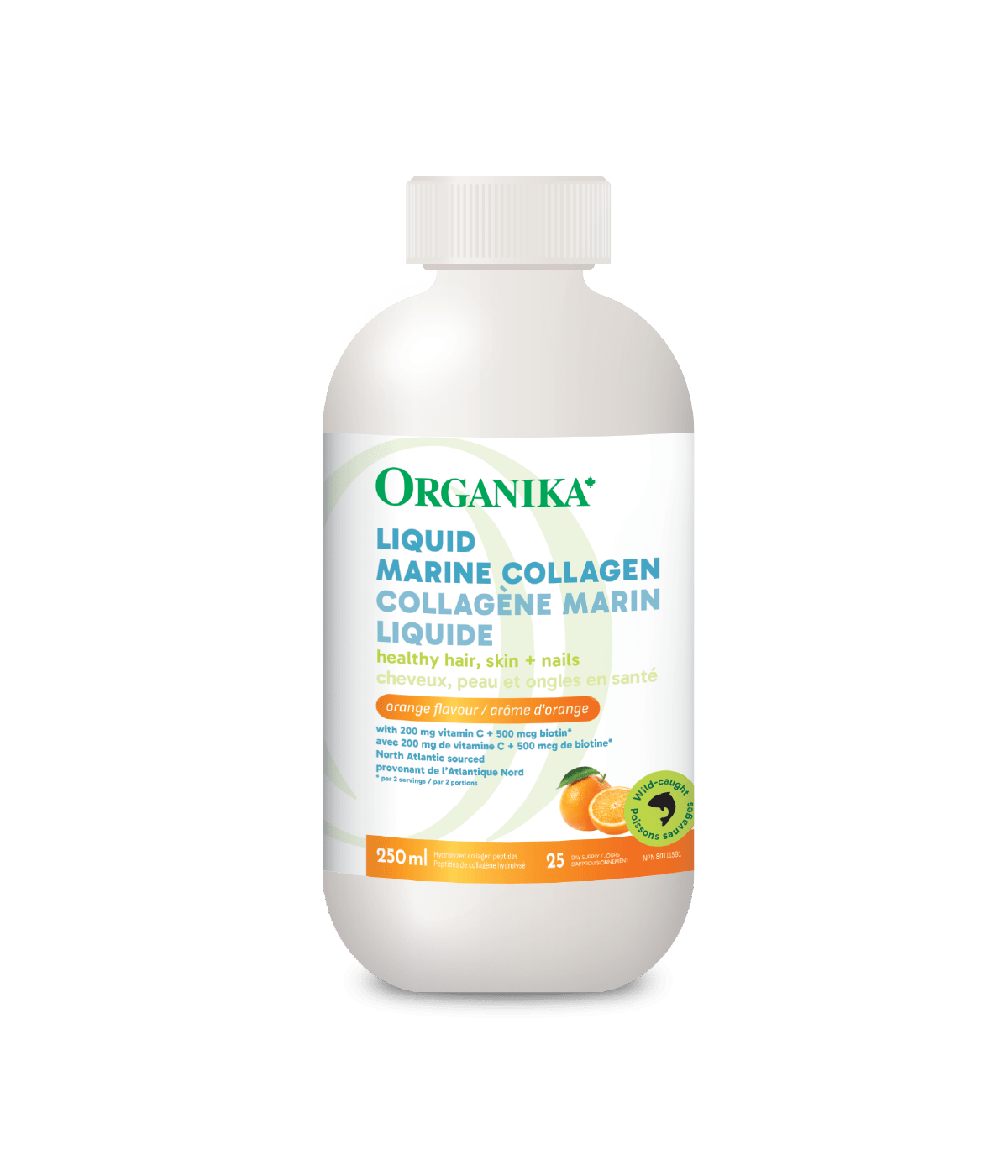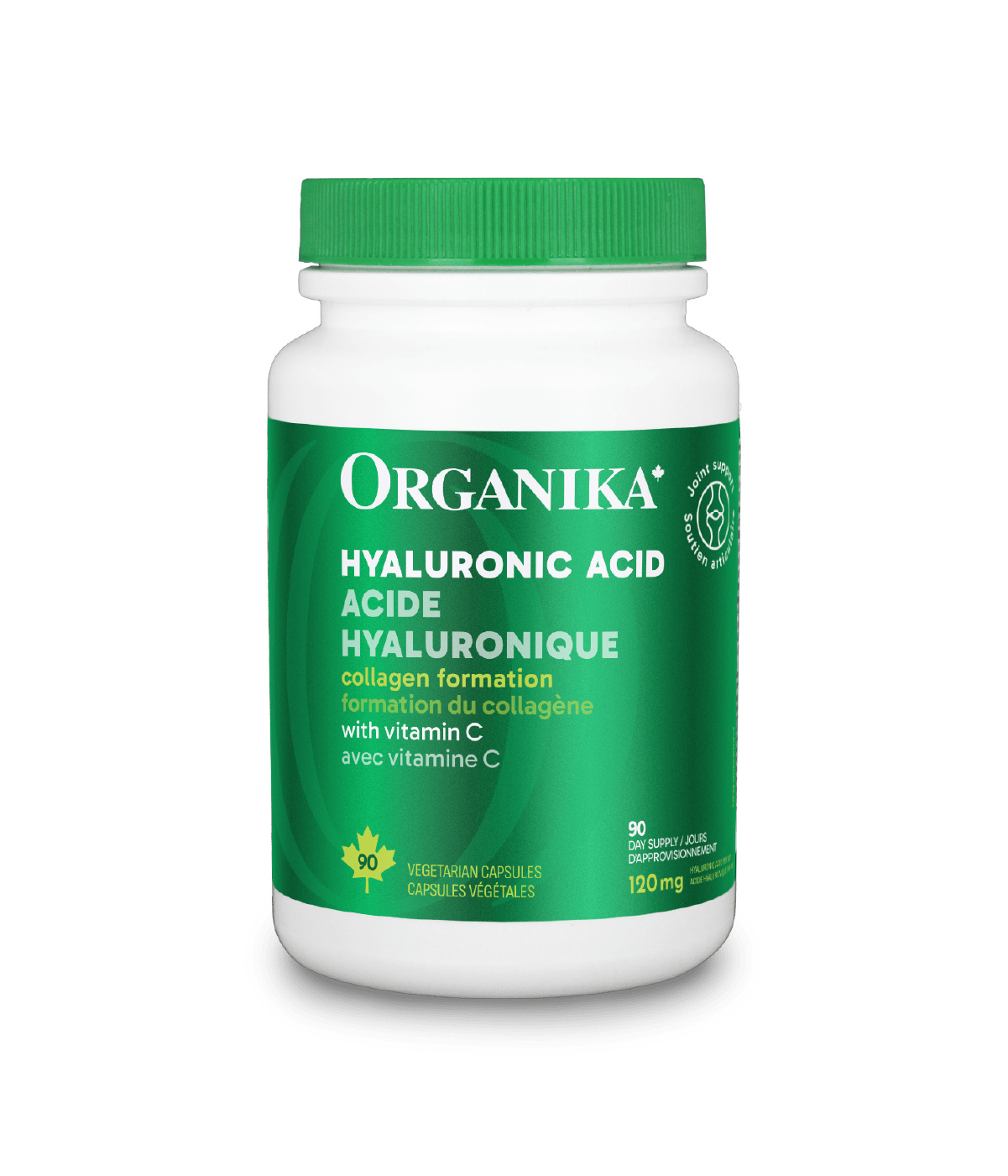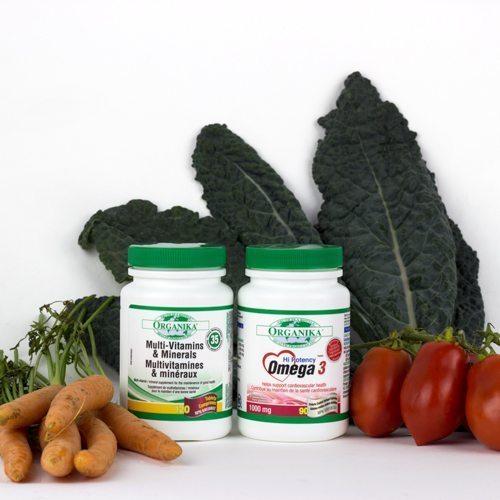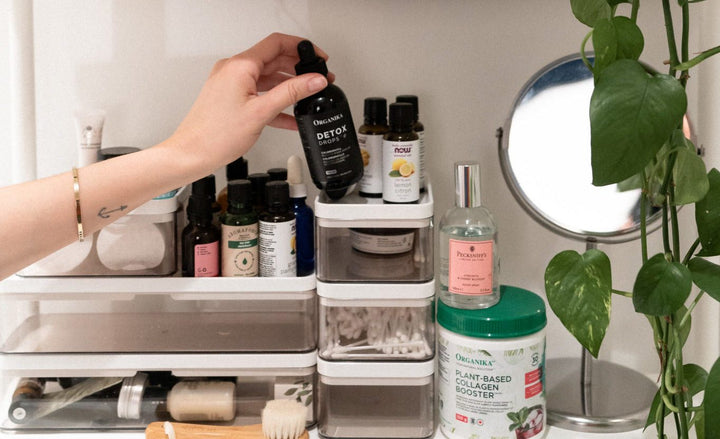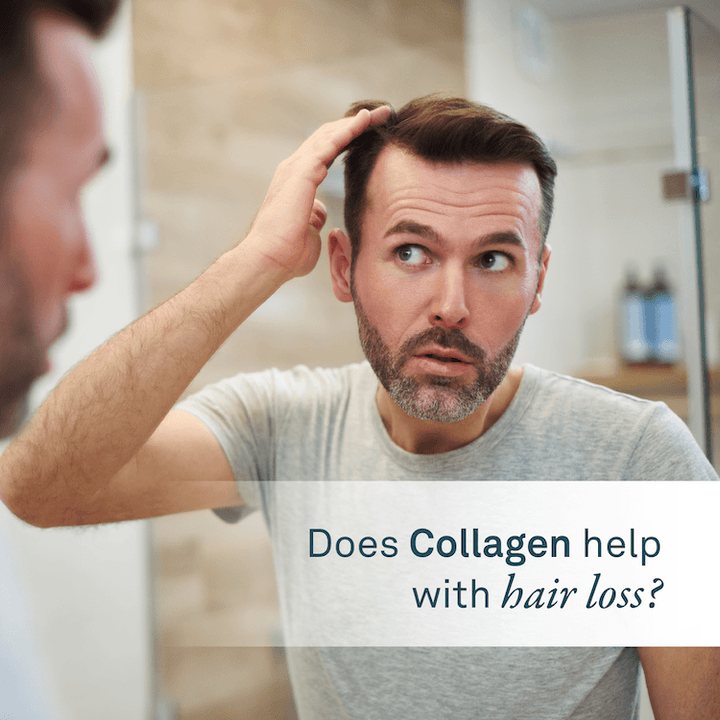

Biotin
Helps maintain healthy hair, skin and nails
- Improves skin, hair and nail health
- Helps maintain the body's ability to metabolize nutrients
- A factor in the maintenance of good health
- Supports cognitive function
Couldn't load pickup availability

Notify Me When Available
Enter your email and we'll let you know as soon as this product is back
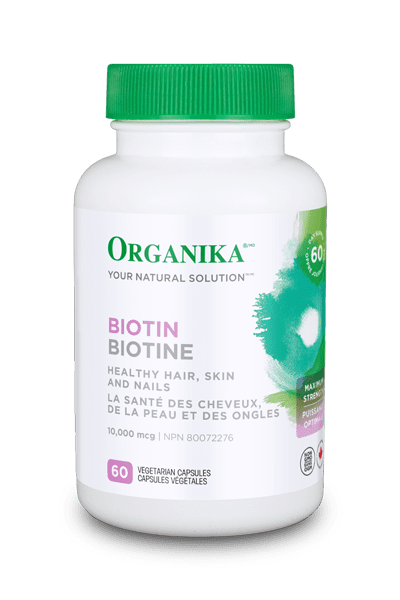
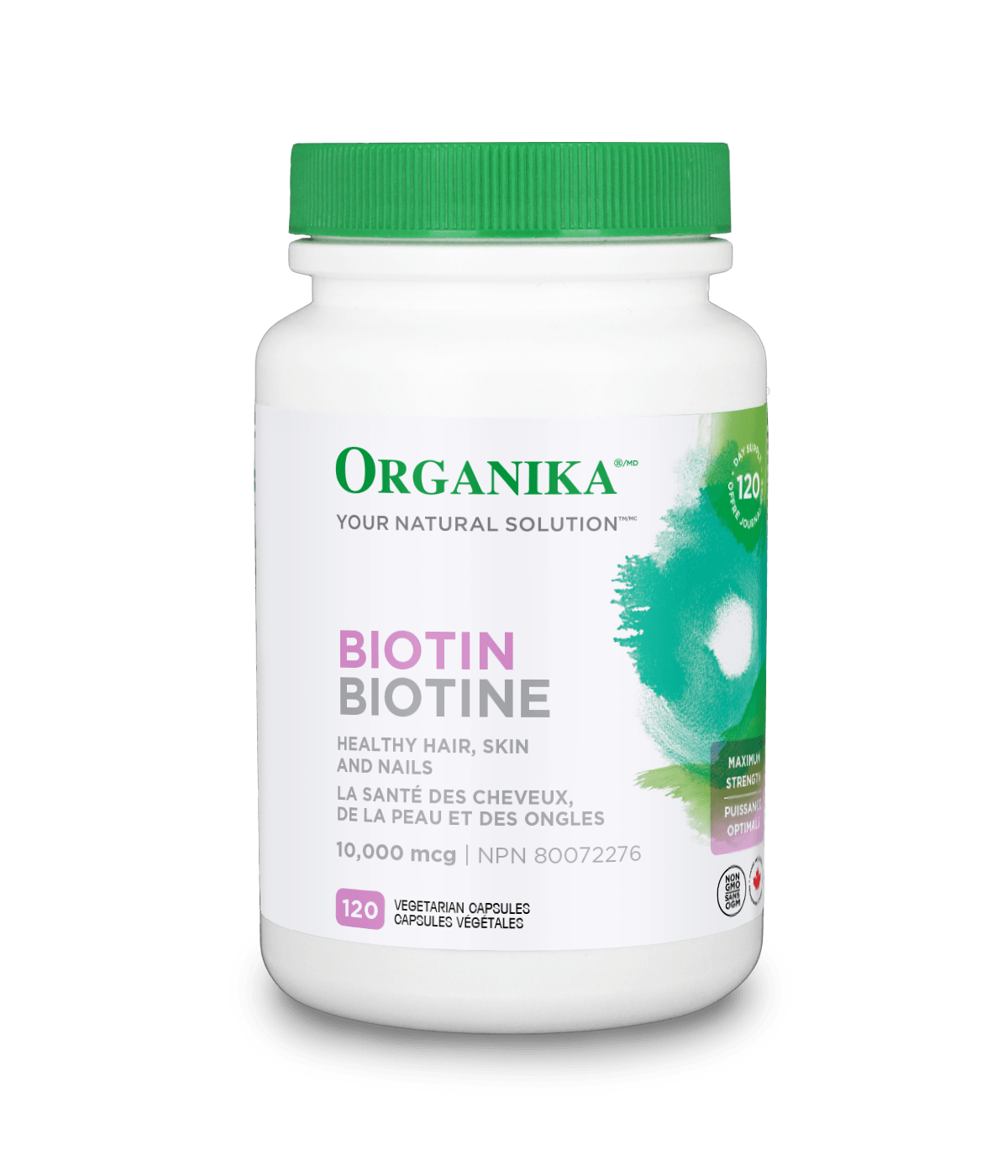


Supplement Facts
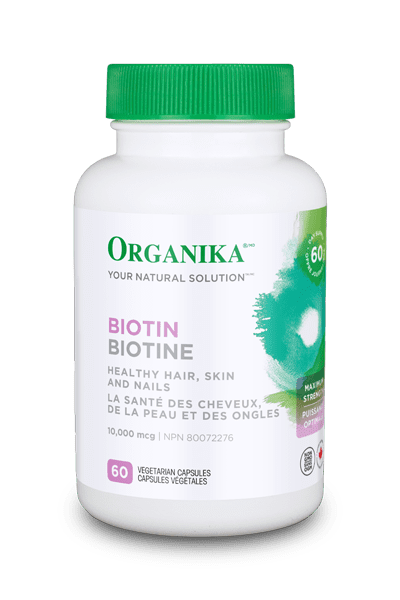
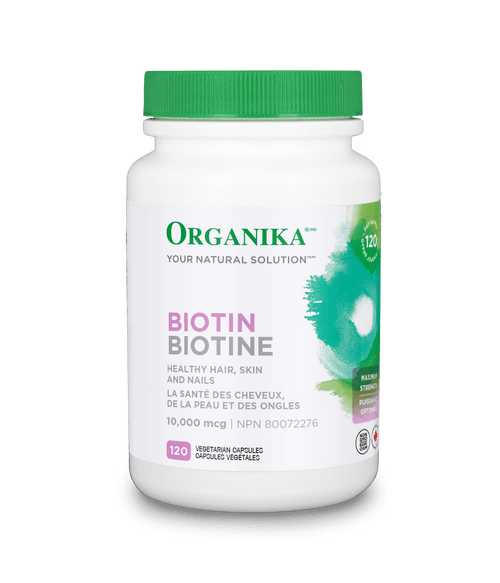
Ingredients & Nutrition
MEDICINAL INGREDIENT — EACH VEGETARIAN CAPSULE CONTAINS: Biotin 10,000 mcg.
NON-MEDICINAL INGREDIENTS: Magnesium Stearate (Non-GMO Vegetable Source), Microcrystalline Cellulose, Hypromellose / Pullulan (Vegetarian Capsule).
RECOMMENDED DOSE — (ORAL) ADULTS ONLY: Take 1 capsule per day.
DURATION OF USE: Consult a health care practitioner for use beyond 4 weeks.
CAUTION: Consult a health care practitioner prior to use if you are pregnant or breastfeeding.
Ingredients & Nutrition
Supports healthy hair, skin, nails, energy, and mood—because even a mild deficiency can take a toll on your everyday wellness


The Full Scoop
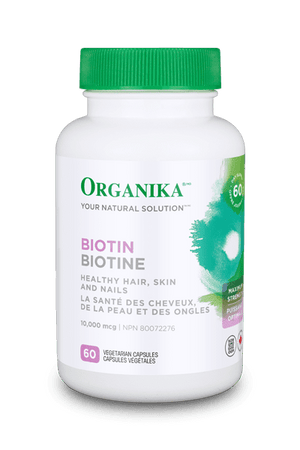
-
A factor in the maintenance of good health
-
Supports cognitive function
A water-soluble B vitamin, biotin helps maintain healthy hair, skin and nails, while also playing a role in metabolism, supporting cognitive function and being a factor in the maintenance of overall health.
Ask Away
We’ve got the FAQs covered. But if you’re still stuck, we’re only a message away.
Get in TouchWho specifically may be more deficient in biotin?
Low levels are found more often in smokers or heavy drinkers, athletes, the elderly or women who are pregnant or breastfeeding. Digestive issues like low stomach acid, inflammatory bowel issues, or the use of antibiotics can contribute to a decrease in biotin’s absorption and production in the digestive tract. Some people may be low due to a metabolic disorder that causes one to be deficient in the enzymes that process biotin.
Where can I find biotin in my diet?
You’ll find biotin in foods including animal livers, eggs, milk, salmon, avocado, peanuts, sunflower seeds and baker’s yeast. To benefit from the biotin from these sources however, one has to be able to digest them from the protein-bound form of which they are found in food. Consider supporting your digestive system with Organika’s Full Spectrum Plant Enzymes.
Can I solve a deficiency by just increasing biotin-rich foods in my diet?
It might be a bit of a long shot. Food servings may contain anywhere from 2 to 140 mcg of biotin. Organika’s Biotin capsules contain 10,000 mcg, making it a much more efficient way to increase your biotin intake.
What can I do to support my good bacteria and their biotin production?
Depending on the state of your microbiota, it may be helpful to support your digestive tract lining, reduce your detrimental bacteria and increase your beneficial bacteria. Products like Organika’s Collagen or Bone Broth lines can be digestive tract saviours. Organika’s Mushroom Adaptogens, Bee Propolis or Garlic can help decrease bad bacteria. And Organika’s Probiotic + Prebiotic Powder can help repopulate the good guys in your gut.
Is there anything I should avoid in my diet in regards to ensuring ample biotin?
A diet high in raw egg whites can also lead to biotin deficiencies, due to a protein they contain. This protein blocks the absorption of biotin; cooking deactivates its blocking capacity.
You'll Likely Also Love...
Hair Plus
Power your hair's natural strength and shine with nature
Enhanced Collagen Protein Pure Beauty
A collagen blend with added beauty benefits for healthier skin, hair and nails
Liquid Marine Collagen
A liquid alternative to bovine collagen with wild-caught ingredients that smooth skin and strengthen nails.
Hyaluronic Acid Capsules
Increases hydration in connective tissues throughout the body
Support Beyond Products
Improve your health by building a better foundation for healing The path to being healthier starts with a stronger foundation. Often when issues arise with our health we treat the symptoms and don’t really address the reason why the symptoms exist. When we discontinue the treatment, the symptoms often come back worse than they were before or develop into a more serious health problem. 1. Detoxification When I start working with a new patient, I always start them out with some sort of detoxification program. The reason for this is because we are all exposed to a considerable amount of toxins in our daily life. It’s unavoidable. While our body does have the ability to detoxify itself, it wasn’t designed to handle the flood of stuff that we are often exposed to in our day-to-day life. Toxins in our body cause damage to our tissues and impair basic pathways that are essential to our health. This serves as an obstacle for people trying to feel better. 2. Digestion and proper nutrition Digestion and proper nutrition impact how we absorb and utilize the building blocks (vitamins, minerals, proteins and carbohydrates) of our health. Eating a healthy diet is a great start, but it’s difficult to get everything our body needs in our diet on a daily basis. This is for a couple of reasons. Firstly, due to impaired digestive function (dysbiosis, leaky gut, IBS, hypochlorhydia), our bodies don’t always breakdown and absorb our nutrients effectively. Secondly, our food is lacking in some essential nutrients that are fundamental to our health. Supplementing with a few basics (multivitamin and mineral, omega 3 fatty acids and vitamin D) can really make an enormous difference in your overall health. 3. Exercise and movement Exercise and movement are essential for health. As the basic law of inertia states an object in a state of rest will remain in a state of rest. This means that the less you do, the more sluggish and less efficient your system becomes. Movement helps to keep better flow throughout your system and provides benefits to your body that go far beyond the obvious physical improvements. It balances our endorphins, helps our body to cope better with stress and improves the function of all the systems of the body. 4. Immunity Our immune system is integral to how our body copes with exposure to outside influences, such as bacteria or viral infections. It also plays a key role in inflammation and allergies. If you are getting sick often or have allergies and inflammation, these are signs of immune system dysfunction. There are lots of ways to improve your immune function with herbs such as echinacea, ginseng, turmeric, astragalus, and medicinal mushrooms like reishi. Taking these if you feel run down or just to give your immune system a boost as we go into peak cold and flu season can be powerful for your health. 5. Sleep Sleeping well is crucial to your overall health. Most people need 7-8 hours of sleep consistently to be able to function optimally. Not sleeping well or enough, will wear you down and make you susceptible to all kinds of health issues. Also, if you are already experiencing health problems, not sleeping will slow down your road to recovery significantly. 6. Stress management Everyone experiences stress at times, it’s just a fact of life. If stress isn’t managed properly it can contribute to all kinds of dysfunction in our health. Supporting the body during times of stress is imperative to getting through the rough patches in our lives. There are many ways to help your body during stressful times including specific nutrients like B vitamins and herbs such as ashwagandha and ginseng. Lifestyle changes to decrease stress including deep breathing and shifting your perspective can all help you to cope better with stress. Rebuilding a stronger foundation for your health will allow your body to realign and rebalance more efficiently and effectively. Ultimately this makes the path to better health much faster and easier. Getting a plan in place that starts with these fundamentals will ensure that you are on track to better health now, and for years to come. Health and happiness! Dr. Cheryl Cooper Dr. Cheryl Cooper B.Sc., ND Dr. Cheryl Cooper is a Naturopathic Doctor and the owner and CEO of Vitallife Integrative Medicine based in Ottawa. She has 20 years of experience in the health and wellness industry, specializing in hormone balancing, women’s health, detoxification, stress management and sleep issues. Dr. Cooper uses a holistic approach to helping patients, involving educating and empowering patients to take control of their health. Recently moved to her hometown of Canmore, Alberta, she now practices out of Inner Balance Spa in Calgary. Vitallife Integrative Medicine @doc_cheryl
read moreEver heard of ingestible beauty? We’ve all heard the adage “beauty comes from the inside”, and science agrees. Despite how much beauty companies want us to believe otherwise, having smooth, glowing skin and strong hair and nails is much more a product of optimal internal health than it is a result of the hair products, cleansers or moisturizers we use. Our hair, nails and skin can be viewed as an external expression of our internal health; if our insides aren’t happy – if our hormones are unbalanced, our immune system is struggling, our digestive system is not working well, or our nervous system overwhelmed - it often shows up on the surface, as brittle nails, dry fragile hair, or skin that is dry, congested or uneven. The cells that make up our hair, nails and skin divide very rapidly, which is why we need to trim our nails and get hair cuts, and why we can heal small cuts and abrasions quickly or shave every day without causing damage. However, to facilitate this rapid division, the cells require a high level of fuel and nutrients to make healthy new cells. So if you are deficient in a particular nutrient it will often show up in your hair, nails and skin first. The most important nutrients for these tissues are water, healthy fats and the protein collagen, which all work to keep your skin hydrated, vital, strong and smooth. The lymphatic system: your body's housekeeper Another key component of keeping your skin, hair and nails healthy, strong and clear is your lymphatic system. It’s a system of vessels that circulates lymph fluid, a clear, water-like substance that picks up waste products and toxins and filters them so they can be removed from the tissues and eliminated from the body in the urine via the kidneys. The only catch to the lymphatic system’s function is that you need to be moving; the lymphatic vessels rely on the contraction of nearby muscles to pump the lymph fluid to where it needs to go. So if you’re not moving, neither is your lymph fluid, and therefore waste products and toxins are accumulating in your tissues and causing cellular dysfunction, that can also start showing up as skin issues. As you start to move around, your muscles contract, the lymph fluid starts moving and the tissues get flushed out, clearing the congestion. Sweating also flushes out toxins and waste products from the skin, clears out pores and the sweat itself has a gentle antimicrobial action on the skin, so it can decrease risk of infection. So the more exercise and the more sweating, the better! Eat well, stay hydrated, keep moving! So you want to have healthy, glowing skin, and strong, resilient hair and nails? Make sure you’re getting enough water – aim for 2-3 L per day. Remember to include healthy fats at every meal – avocados, coconut milk/oil, olive oil, nuts, and seeds are all great sources. Make sure you’re getting enough protein and collagen – good quality, well-sourced meat is a great dietary source of collagen, and you can also use a collagen supplement or use a plant-based collagen booster to ensure adequate intake. Chlorophyll supplementation has also been shown to promote the body’s natural production of collagen, as well as decreasing facial wrinkles and improving the skin’s elasticity. And if that wasn’t enough, taking chlorophyll internally can also help to protect AND repair your skin from UV radiation (sun) damage! Last, but definitely not least, make sure you’re getting lots of heart-pumping, sweat-inducing exercise! At least 30 minutes a day is ideal, but more is better! Just make sure to rinse off after to clear away all the toxins and bacteria in the sweat, and you’ll be glowing in no time. References Sibilla, S., Godfrey, M., Brewer, S., Budh-Raja, A., & Genovese, L. (2015). An overview of the beneficial effects of hydrolysed collagen as a nutraceutical on skin properties: Scientific background and clinical studies. The Open Nutraceuticals Journal, 8(1), 29-42. Gillies, A., Lieber, R. (2011). Structure and function of the skeletal muscle extracellular matrix. Muscle Nerve, 44(3): 318-331. Wells, D. (2009). The post-workout protein puzzle: which protein packs the most punch? Strength and Conditioning Journal, 31(1): 27-30. Gauza-Wiodarczyk, M., Kubisz, L., Wiodarczyk, D. (2017). Amino acid composition in determination of collagen origin and assessment of physical factors effects. International Journal of Biological Macromolecules, 104(Pt A):987-991. Philips, S. (2011). The science of muscle hypertrophy: making dietary protein count. Proceedings of the Nutrition Society, 70(1): 100-103. Schoenfeld, BJ., Aragon, AA., Krieger, JW. (2013). The effect of protein timing on muscle strength and hypertrophy. Journal of the International Society of Sports Nutrition, 10(53). Cho, S., Won, C., Chung, J., Lee, S., Lee, D., Kim, S., Lee M. (2006). Drink containing chlorophyll extracts improves signs of photoaging and increases type I procollagen in human skin in vivo. Annals of Dermatology, 13(4): 111-119.
read moreKeep skin healthy with sun safety tips this summer Summer is in full swing, which means you’re likely spending more time outside. That makes sun safety for healthy skin a must! Being out in the sunshine is great. It makes beach days, and picnics in the park all the more worthwhile. The sun also does a lot of great things for our bodies. It keeps us warm, and promotes the production of vitamin D3 on the surface of our skin. Vitamin D3 is an essential vitamin for the health of our bones and teeth, helping with the absorption of calcium and phosphorous. Being out in the sun also enhances our mood and makes us feel happier and more alert. Too much sun however, can be a bad thing. The sun releases ultra violet radiation in the form of UVA and UVB rays. These rays are the culprits behind the skin damage and sunburns that may increase the risk of skin cancer over time. Getting sunburnt can also lead to early signs of aging. A sunburn damages the skin at a cellular level which overtime with repeated sun damage can lead to dry, wrinkled and leathery skin. Your skin however does do its best to protect itself. The skin contains a chemical called melanin, that reacts with the UV rays of the sun. Melanin is found in different colours and concentrations in the skin of different people to act has a natural barrier to protect against burning. Melanin levels increase with sun exposure to darken the skin for protection. Light tanning however doesn’t negate the risk of sun damage. With various levels of melanin found in different people, it’s hard to determine if the tan developed is safe and free from sun damage. To ensure the best sun protection, taking precautionary measures when you’re outdoors can help prevent a sunburn and keep your skin hydrated and healthy. Sun Safety Tips for Healthy Skin 1. Pick the right time Avoid soaking up the sun when the UV rays are strongest, typically between 10am and 3pm. 2. Seek the shade Opt for shadier areas to lounge, be it under the protection of a tree, or bring an umbrella to shade yourself from direct exposure. 3. Dress for the occasion Wearing a wide brim hat and long sleeves when possible can help to shield you from the sun. While sunglasses, help to filter the UV rays to protect your eyes and reduce the risk of cataracts. 4. Use Sunscreen Using sunscreen is one of the best ways to prevent a sunburn. It filters and blocks UV rays to reduce the risk of sun damage from prolonged exposure to sun. Sunscreen should be applied generously, and re-applied as recommended on the label. Make sure to look for water resistant and sweat resistant for active summer days. We love Organika® Coenzyme Q10 Sunscreen lotion as a natural skin-healthy option for sun safety. With SPF 25, it provides broad spectrum protection to filter and screen UVA and UVB rays. It’s also both water and sweat resistant to prevent sunburns no matter what you’re doing. References: http://www.sunsafetyalliance.org/safety_tips.html http://www.cdc.gov/cancer/skin/basic_info/sun-safety.htm http://www.cancer.ca/en/cancer-information/cancer-101/what-is-a-risk-factor/sun-and-uvr-exposure/sun-protection/?region=on http://www.hc-sc.gc.ca/hl-vs/sun-sol/index-eng.php http://www.dermatology.ca/wp-content/uploads/2012/07/sunscreen_eng-2011.pdf http://my.clevelandclinic.org/health/healthy_living/hic_An_Overview_ofYour_Skin/hic_protecting_yourself_from_sun_damage What’s your favourite way to have fun in the sun?
read moreThe evidence says, collagen may improve your hair. As the body’s most abundant protein, collagen gives structure to many parts of the body, including... hair! Because the amount of collagen you produce significantly decreases as you age, collagen supplements have been the focus of combatting structural losses, such as hair health. Let’s review how collagen can support your hair, including whether it helps with hair growth. Collagen has amino acids that help build the hair. Although there are not a lot of human studies on the use of collagen to increase hair growth directly, it has been shown the collagen helps to build the protein necessary for creating hair. Hair is made up of keratin (a protein). To make keratin the body needs proline. Collagen (being primarily made of proline, glycine and hydroxyproline), can provide your body with the building blocks for hair. Collagen may be useful in age-related hair thinning. The quality of your hair can be attributed to the health of the hair follicle itself. This is tied into the fact that collagen contributes to the elasticity and strength of the dermis (mid-layer of the skin). As you age, the cells in the dermis lose their elasticity due to the loss of collagen. Since the dermis also contains the root for each hair, maintaining a healthy dermis is key to hair strength. Since hair grows out of skin, and collagen supports skin health, helping improve the strength of your skin cells can in turn contribute to decreased hair thinning and potential better growth. Which collagen is best for hair? Collagen types 1 and 3 have been found in hair follicles. Therefore, supplementing with hydrolyzed collagen peptides that offer both types are best. Enhanced Collagen Original made from bovine collagen contains both types. Maximize your hair health If you’re interested in strengthening your hair, it’s a good idea to couple it with hair focused supplements. Enhanced Collagen Pure Beauty - combines Canada's #1 Collagen Powder* rich in type 1 and 3 collagen peptides, blended with hyaluronic acid, vitamin C, zinc and silica to maximize hair and skin health. Specifically, silica can help to strengthen hair and prevent hair loss. Hair Plus - combines five potent ingredients to improve the nutrient content and availability required to strengthen the health of your hair, including: Ginkgo Biloba, Horsetail Extract, Grape Seed Extract, Fo-Ti Powder, and Barley Juice Extract. This article has been fact checked.
read more


